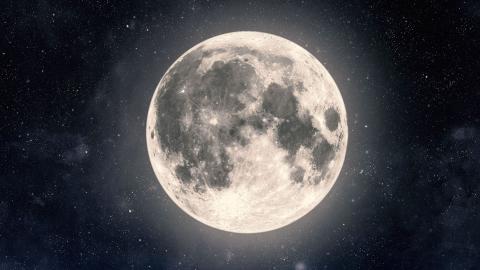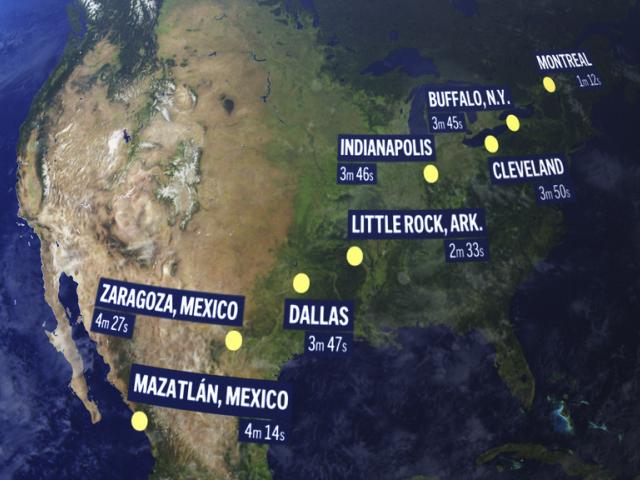
Turn Your Eyes to the Heavens as 4 Supermoon Spectacles Follow This Year's Rare Solar Eclipse
Get ready for four bright celestial events in the coming months as the season of the supermoons kicks off. It's a quartet of supermoons that includes a partial lunar eclipse, coming during a year where the U.S. already paused to mark a rare solar eclipse.

***Please sign up for CBN Newsletters and download the CBN News app to ensure you keep receiving the latest news from a distinctly Christian perspective.***
Earth’s constant companion will put on a show, growing brighter and brighter starting Monday as it draws closer to our planet than normal.
According to NASA, the August full moon is a supermoon – and in this case, it's a "Blue Moon". It happens on August 19 at 2:26 PM EDT. At that point, the Moon will be 224,917 miles away from us.
The Moon will appear full for three days, from Sunday morning through early Wednesday morning.
"The first recorded use of 'Blue Moon' in English dates from 1528. Speculations on the origin of the term include an old English phrase that means 'betrayer Moon' (because it led to mistakes in setting the dates for Lent and Easter). Or it may be a comparison to rare events such as when dust in the atmosphere makes the Moon actually appear blue," NASA explains.
Then the string of lunar spectacles extends to September when a supermoon will coincide with a partial lunar eclipse. The Moon will be nearly 3,000 miles closer to Earth the night of September 17.
During that September supermoon, you'll be able to see the mini-eclipse in much of the Americas, Africa, and Europe. Earth’s shadow will cover part of the Moon, looking like someone took a small bite from a round cookie.
Then, in October, the Moon will appear to be bigger and brighter than at any other time this year. It will be 222,055 miles from Earth.
The supermoon spectacle concludes with one more appearance in November, shortly after the presidential election.
These events occur on schedule due to the Moon’s shifting, oval-shaped orbit. For some skywatchers, you might only see the moon as an ordinary-sized full moon, but it will be closer than normal.
It's actually more about the brightness of the moon than a major increase in the visible size – a supermoon can be 30% brighter than average.
Meanwhile, the U.S. and other countries are ramping up for some lunar exploration with landers and eventually astronaut moonwalkers under Apollo's follow-on program, Artemis.
The 2024 Solar Eclipse Crisscrossed America
Earlier this year, on April 8, millions of Americans greeted a rare solar eclipse as it passed over the country from Texas to Maine.
Eagle Pass, Texas was the first U.S. city to witness the celestial event as it began to unfold across the country.
More than 30 million Americans were in the path of the eclipse as it cut through 15 states and major cities including Dallas, Indianapolis, Cleveland, and Niagara Falls.

"God is in control and He controlled the eclipse today and He controls me. And He loves all of us and I am glad I got to enjoy it with all the people here," remarked Arkansas resident Theresa White at the time.
The next big solar eclipse for the continental U.S. won't happen until 2045. It will stretch from northern California to Cape Canaveral, Florida.
WATCH Dead More Than an Hour: God’s Miraculous Power is Alive





